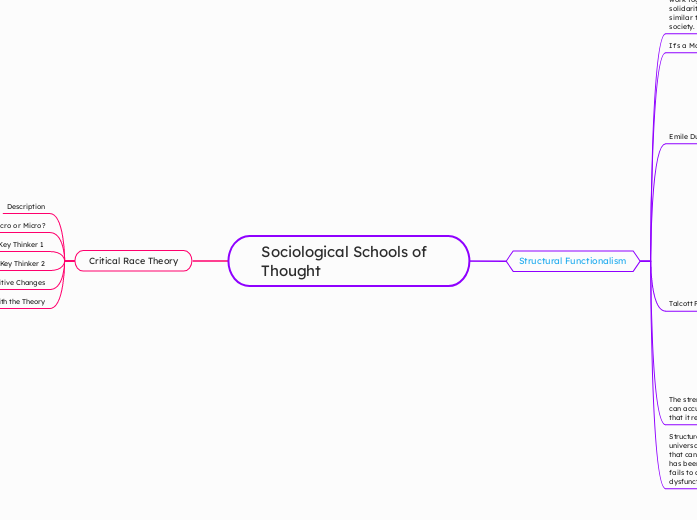Sociological Schools of Thought
Structural Functionalism
Structural functionalism framework seeks to explain society as a complex system whose parts work together for stability and to promote solidarity. This theory is a macro-level theory, similar to looking down a helicopter hovering over society.
It's a Macro Theory
Emile Durkheim
Durkheim was a French sociologist.
He is credited with creating the sociological method that is still used today.
His theories greatly contributed to building the foundation of structural functionalism.
Durkheim argued that society functions logically and protects the interests of its members.
He paid close attention to the forces that bring people together in a society.
He viewed humans as “social creatures,” who define themselves by their social interactions.
Talcott Parsons
Parsons was a structural functionalist.
He helped structural functionalism establish strong roots in the U.S.
He focused on social behaviour as a single entity or mass.
Parsons believed that all social dynamics (eg. relationships) could be understood through examining their functions in society.
He argued that everything that exists in a society exists for good reasons.
He was certain that our actions reflect our own values or the values of the people around them.
The strengths of structural functionalism are that it can accurately model many aspects of society, and that it relates society to other topics of study.
Structural functionalism has been criticized for universalizing and normalizing social structures that can be seen as problematic or oppressive . It has been argued that this theoretical framework fails to address the negative consequences and dysfunctions that can arise from social structures
Critical Race Theory
Description
Macro or Micro?
Key Thinker 1
Key Thinker 2
Positive Changes
Problems/Issues with the Theory
